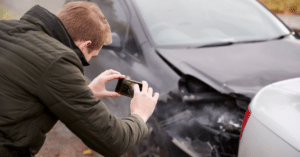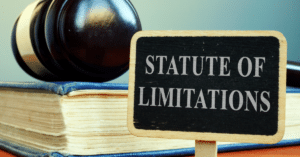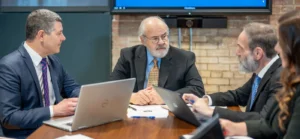SCREENING AND RESEARCHING POTENTIAL JURORS IN THE JURY DUTY SELECTION PROCESS
Leading up to trial, your trial team will receive the jury panel from the court, listing the potential jurors. The list is typically accompanied by questionnaires the potential jurors have completed that provide basic background information such as:
- Name
- Address
- Age
- Marital status
- Education
- Occupation or employment
- Relation to law enforcement or government official
Your paralegal plays a critical role in helping your trial team learn as much as possible about the jury duty candidates, before they ever set foot in the court room. After receiving the jury list and questionnaire, your paralegal will immediately begin their research. This includes searching social media platforms, local court dockets and search engines. In many instances your paralegal will learn a lot about a potential juror including sex, race, political affiliation, socioeconomic status, and employment background, as well as information about their immediate family such as spouse or kids and their employers. They check for every additional information they can to get a feel for that person.
HOW PARALEGALS CONTRIBUTE TO THE VOIRE DIRE PROCESS
On the first day of trial, the jury panel is called into the court room. The attorneys for both the Plaintiff(s) and Defendant(s) then begin the process of “voir dire,” which is a term derived from Latin and French. It essentially means “to see or speak the truth.” Voir Dire helps ensure everyone is afforded a fair trial.
While preparing for trial, your paralegal will work closely with your attorney and other members of the trial team to craft appropriate questions that will be presented to potential jurors under the supervision of the trial judge. This is done to help eliminate anyone with a strong bias or that would have a hard time being fair to either side.
For instance, if your case involves a drunk driver questions might be asked such as:
- Have you or a loved one ever been injured by a drunk driver?
- Are you strongly against driving under the influence even if it’s within the legal limit?
- Do you think that you could be fair in making decisions in a case where one of the drivers was under the influence?
While the attorneys question the potential jurors, paralegals are busy observing and noting responses, including general appearance, demeanor, vocal tone, facial expressions, body language, and any visible reactions to any of the questions. This is a tremendous help in determining which potential jurors seem capable of being fair, which ones might have an unfair bias, even if they’re unaware of it or didn’t disclose it.
The paralegal also considers if the potential jurors appear attentive and interested or if they are daydreaming, are disengaged or disinterested or dozing off before things even really get started. Often times the members of the trial team will assign individual ratings to each prospective juror and make recommendations to your attorney regarding follow up questions.
KNOWING EACH COURT’S VOIR DIRE RULES AND PROCEDURES
Each court typically has their own local rules and procedures that apply to voir dire and the entire jury duty selection process. These typically include the exercise of challenges for cause and peremptory challenges. Essentially each party will have a limited number of each, with the goal of this system being that a fair trial is afforded to all with the choosing of appropriate jurors and alternates, which in most jurisdictions consist of six to 12 jurors and one or two alternates.
Jury selection is a process of elimination that requires good knowledge of the issues of the case, good research skills, the ability to observe actions and interactions, as well as the ability to make suggestions to help ensure the best outcome for the client. The goal is to determine which jurors will most likely identify with you and support your claims so we can fight to keep those in place to serve on the jury, and remove those that will not.
When it comes time for trial, you want to make sure you’re working with a firm that understands the importance of voir dire and the jury duty selection process. Contact our team today to learn more.








